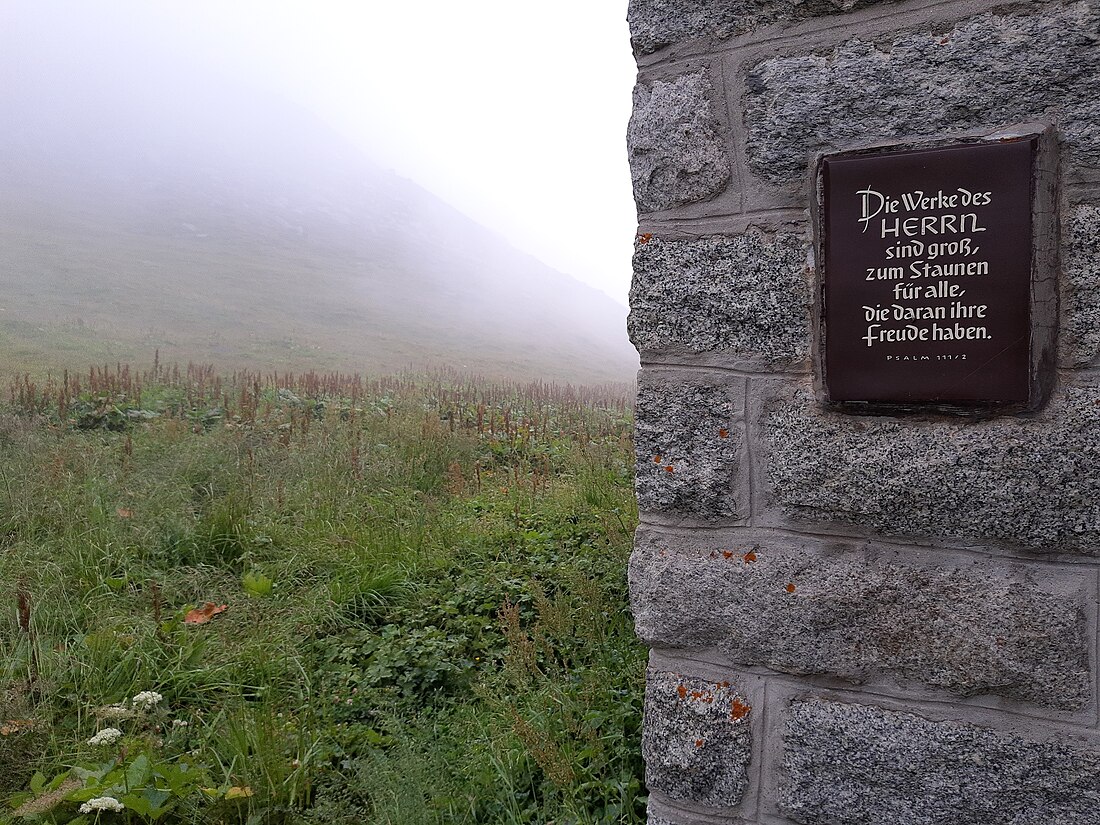Top Qs
Timeline
Chat
Perspective
Psalm 111
111th psalm of the book of psalms From Wikipedia, the free encyclopedia
Remove ads
Psalm 111 is the 111th psalm of the Book of Psalms, beginning in English in the King James Version: "Praise ye the LORD. I will praise the LORD with my whole heart". In the slightly different numbering system used in the Greek Septuagint and Latin Vulgate translations of the Bible, this psalm is Psalm 110. In Latin, it is known as Confitebor tibi Domine.[1] It is a psalm "in praise of the divine attributes".[2] This psalm, along with Psalm 112, is acrostic by phrase,[3] that is, each 7-9 syllable phrase begins with a letter of the Hebrew alphabet in order. Psalm 119 is also acrostic, with each eight-verse strophe commencing with a letter of the Hebrew alphabet in order.[4] The Jerusalem Bible describes Psalm 112, "in praise of the virtuous", as "akin to this psalm in doctrine, style and poetic structure.[5]
The psalm forms a regular part of Jewish, Catholic, Lutheran, Anglican and other Protestant liturgies. Musical settings include works by Heinrich Schütz in German, and Marc-Antoine Charpentier, Henri Desmarets and Giovanni Battista Pergolesi in Latin.
Remove ads
Uses
New Testament
In the New Testament, Psalm 111 is quoted twice:
- Verse 9a is quoted in the Song of Zechariah in Luke 1:68.[6]
- Verse 9c is quoted in Mary's song of praise, the Magnificat, in Luke 1:49.[6]
Judaism
- Verse 4-5 are found in the repetition of the Amidah during Rosh Hashanah.[7]
- Verse 10 is recited upon awakening following Modeh Ani and handwashing.[8]
Coptic Orthodox Church
In the Agpeya, the Coptic Church's book of hours, this psalm is prayed in the office of None.[9]
Protestantism
This is a psalm of praise to God for:[citation needed]
- His great works v.2
- His enduring righteousness v.3
- His grace and compassion v.4
- His provision v.5
- Truth and Justice v.7
- Redemption for His people v.9
- Granting of wisdom to those who revere him v.10
Book of Common Prayer
In the Church of England's Book of Common Prayer, this psalm is appointed to be read on the morning of the twenty-third day of the month,[10] as well as at Mattins on Easter Day.[11]
Remove ads
Musical settings
Heinrich Schütz wrote a setting of Psalm 111 in German, "Ich danke dem Herrn", SWV 34, as part of Psalmen Davids, published first in 1619. He wrote a setting of a metred paraphrase of the psalm in German, "Ich will von Herzen danken Gott dem Herren", SWV 209, for the Becker Psalter, published first in 1628. Marc-Antoine Charpentier composed four settings of the psalm in Latin:
- In 1670s, grand motet "Confitebor tibi Domine", H.151, for soloists, chorus, 2 violins, and continuo
- In 1690s, grand motet "Confitebor tibi Domine", H.200 - H.200 a, for soloists, chorus, and continuo
- In 1690s, grand motet "Confitebor tibi Domine", H.220, for soloists, chorus and continuo
- Mid - 1690s, grand motet "Confitebor tibi Domine", H.225, for soloists, chorus, flutes, strings and continuo
Henri Desmarets set one grand motet lorrain of it, "Confitebor tibi Domine" in 1707. Giovanni Battista Pergolesi composed a setting, Confitebor tibi Domine in C major for soprano, alto, choir, strings and continuo 1732.
Remove ads
Text
Summarize
Perspective
The following table shows the Hebrew text[12][13] of the Psalm with vowels, alongside the Koine Greek text in the Septuagint[14] and the English translation from the King James Version. Note that the meaning can slightly differ between these versions, as the Septuagint and the Masoretic Text come from different textual traditions.[note 1] In the Septuagint, this psalm is numbered Psalm 110.
Remove ads
Notes
- A 1917 translation directly from Hebrew to English by the Jewish Publication Society can be found here or here, and an 1844 translation directly from the Septuagint by L. C. L. Brenton can be found here. Both translations are in the public domain.
References
External links
Wikiwand - on
Seamless Wikipedia browsing. On steroids.
Remove ads

